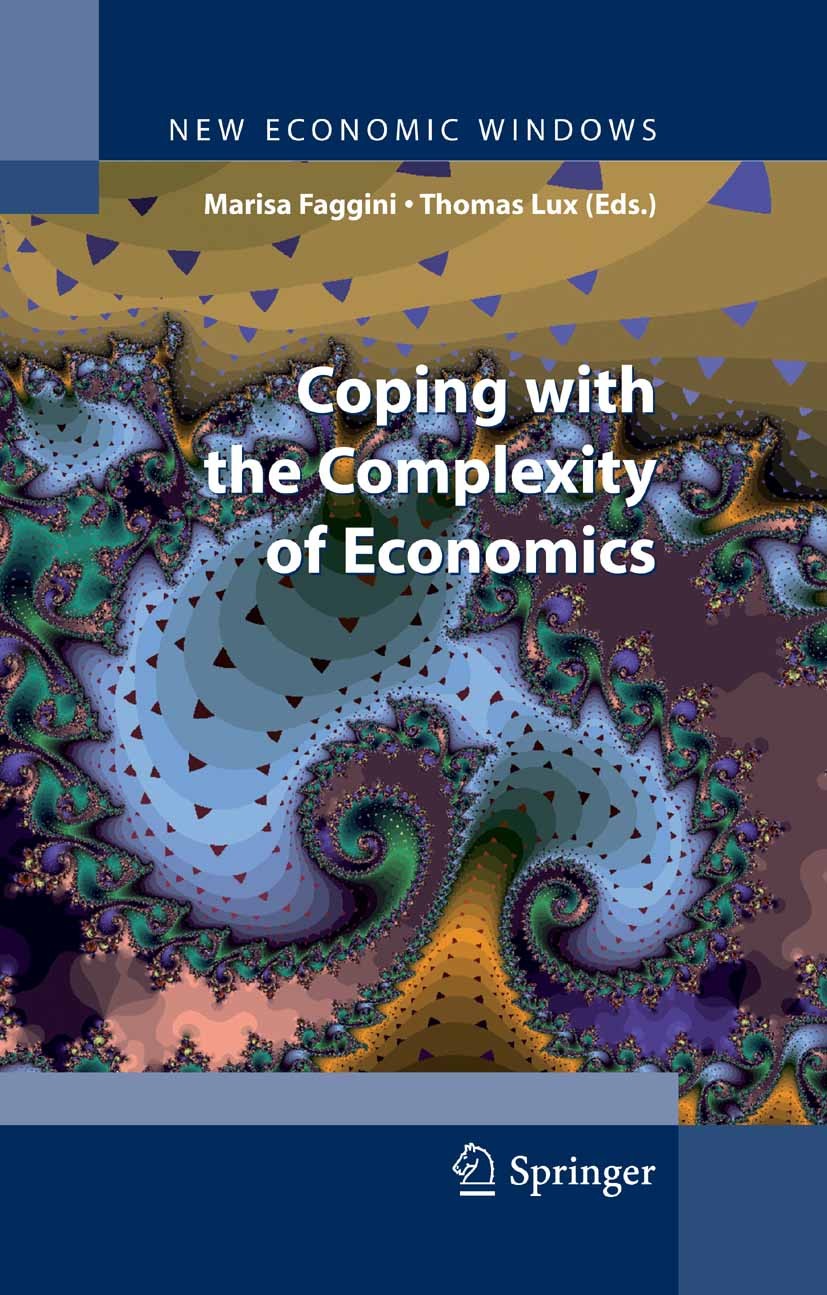| 书目名称 | Coping with the Complexity of Economics |
| 编辑 | Marisa Faggini,Thomas Lux |
| 视频video | http://file.papertrans.cn/239/238159/238159.mp4 |
| 丛书名称 | New Economic Windows |
| 图书封面 |  |
| 描述 | Throughout the history of economics, a variety of analytical tools have been borrowed from the so-called exact sciences. As Schoe?er (1955) puts it: “They have taken their mathematics and their ded- tive techniques from physics, their statistics from genetics and agr- omy, their systems of classi?cation from taxonomy and chemistry, their model-construction techniques from astronomy and mechanics, and their methods of analysis of the consequences of actions from en- neering”. The possibility of similarities of structure in mathematical models of economic and physical systems has been an important f- tor in the development of neoclassical theory. To treat the state of an economy as an equilibrium, analogous to the equilibrium of a mech- ical system has been a key concept in economics ever since it became a mathematically formalized science. Adopting a Newtonian paradigm neoclassical economics often is based on three fundamental concepts. Firstly, the representative agent who is a scale model of the whole society with extraordinary capacities, particularly concerning her - pability of information processing and computation. Of course, this is a problematic reduction as agents are both |
| 出版日期 | Book 2009 |
| 关键词 | Complex system; Complexity; Complexity of Economics; Keynes; behavior; economic systems; information |
| 版次 | 1 |
| doi | https://doi.org/10.1007/978-88-470-1083-3 |
| isbn_softcover | 978-88-470-5569-8 |
| isbn_ebook | 978-88-470-1083-3Series ISSN 2039-411X Series E-ISSN 2039-4128 |
| issn_series | 2039-411X |
| copyright | Springer-Verlag Milan 2009 |
 |Archiver|手机版|小黑屋|
派博传思国际
( 京公网安备110108008328)
GMT+8, 2026-2-8 02:15
|Archiver|手机版|小黑屋|
派博传思国际
( 京公网安备110108008328)
GMT+8, 2026-2-8 02:15


